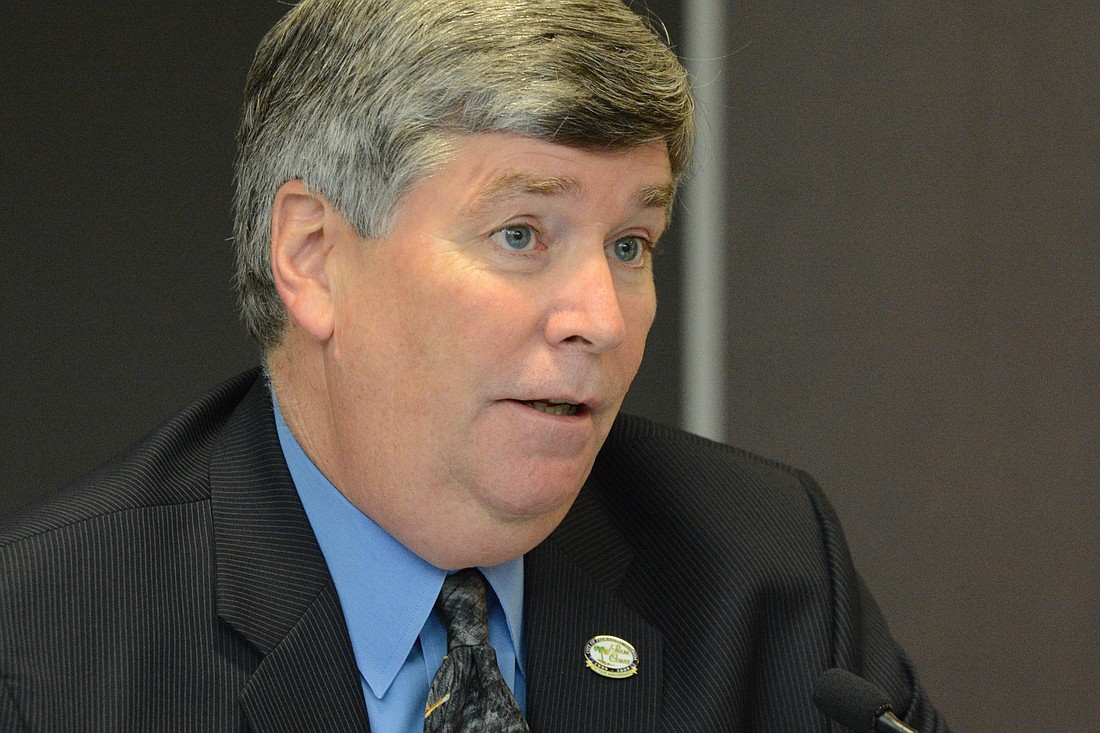- January 22, 2025
-
-
Loading

Loading

Utilities operating in Palm Coast regularly lay their lines so close to the surface that city workers doing swale maintenance work regularly come across — and unintentionally cut — the cables, prompting the companies to pursue the city for compensation.
"This way we can say, 'No, you made a business decision to lay that right on top of the ground, in essence, knowing that it's going to get hit sometime.' ... This is our way of saying: If you're going to have that business decision, then you need to own it and not try to put it on taxpayers."
— Jim Landon, Palm Coast city manager
The city is now trying stop them with a new ordinance requiring that lines be buried at least two feet deep and stating that any damage to cables that are placed above that depth will be the responsibility of the utility company, not the city.
During a City Council workshop July 31, Mayor Milissa Holland asked City Manger Jim Landon where and how often city workers have been dealing with utility cables.
"Anywhere we have a swale," he said. "We cut into cables weekly."
Utility companies are becoming more aggressive about pursuing the city's insurance company for compensation when utility lines are cut. Their claims against the city totaled about $16,000 in 2016 and $24,000 in 2017 but have jumped to more than $100,000 so far already in 2018, according to a city staff. The city's insurance company has been paying some of the utility companies' claims but has been fighting the costs they're trying to charge.
But the companies could bury their lines deep enough that they wouldn't be cut by regular swale work and have made a business decision not to, Landon said.
"Because they don't have to bury (the lines), they don't," Landon said. "And lots of times for a new house ... they'll come out and if the sod's not down yet, they'll lay it down on the ground and they let the sod go on top of it, so they're that deep underground. Or, if the sod's already down, they'll lay it on top of the grass and then another crew comes in and they just take a little shovel and just bury it with a little shovel so it goes down a couple of inches. So then when it comes time for regrading the swale, guess what we run into all the time? These cables. And then the residents are upset they lost their TV service, their phone service, and utilities are upset because they have to come. But it's a business decision on their part that they would rather either pay to have it repaired when it happens, or else file a claim against us and try to have us pay them back for it."
So the city did some research on what other cities do, Landon said, and found that other cities say, in essence, "OK, in our right of way you can put your utilities there, obviously, but you need to bury them at least two feet under the surface."
City Attorney Bill Reischmann added that the utilities would also be required to maintain the cables at that depth so that they couldn't get around the rule by saying that the lines had moved over time.
Landon expected the ordinance change to be more useful in fending off companies' requests for compensation than in getting them to place their lines deeper.
"Here's my prediction, and I've dealt with these utilities for a long time: They're not going to change the way they do it," Landon said. "It's a business decision, because it costs them more to bring in a trencher to go two feet deep. And so they're going to take their chances."
But with the new ordinance, he said, "This way we can say, 'No, you made a business decision to lay that right on top of the ground, in essence, knowing that it's going to get hit sometime. If not by us, if you go out and plant a tree you run into it.' ... A little yard maintenance, and you're going to run into these things. But that's their business decision. ... This is our way of saying: If you're going to have that business decision, then you need to own it and not try to put it on taxpayers."
Utility companies have told the city that the city should do all of its swale work through hand digging to avoid the lines, but that's "just not practical," Landon said.
The City Council will vote on the proposed ordinance during a future council meeting.